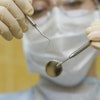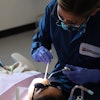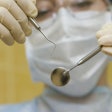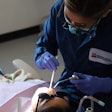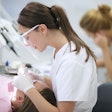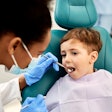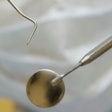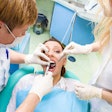
Just one day after Maine's House of Representatives approved a bill that would have created a new category of dental hygienists, the state Senate voted it down.
Late Wednesday night, the Senate rejected LD 1230 in a 14-21 vote, according to a story in the Bangor Daily News.
The measure was designed to address the state's access-to-care issues by allowing dental hygiene therapists to perform some procedures normally performed by dentists and to care for some of the state's most underserved patients.
The bill was sponsored by House Speaker Mark Eves (D-North Berwick), and was co-sponsored by more than 40 lawmakers from both parties.
"For no good reason, the Maine Senate has dealt a considerable blow to children who desperately need oral healthcare in our state," Rep. Eves said in a press statement. "It's terribly disappointing to see the interests of one special group win out over the best interest of the people of our state."
The bill would have established a license for a dental hygiene therapist that would require a therapist to graduate from a dental hygiene therapy program and complete 1,000 hours of clinical training supervised by a dentist. A hygiene therapist would be able to perform some procedures normally performed by dentists, such as restorations and extractions, and be allowed to operate a practice in Maine as long as they had a supervisory agreement with a licensed dentist.
"Lack of dental care in our state is a serious problem," said Rep. Erin Herbig (D-Belfast), who was instrumental in striking a compromise on the bill while it was debated in committee. "It's highly concerning and disappointing that lawmakers in both bodies couldn't come together to address this issue," according to Rep. Eves' statement.
Some 53 countries, including Canada, the U.K., and Australia, as well as two states, Minnesota and Alaska, rely on dental therapists to provide oral healthcare to their citizens, Rep. Eves noted.
The bill passed by the House would have required that 50% of patients served by dental hygiene therapists be recipients of MaineCare, the state's version of Medicaid.
Bill supporters argued that 15 of Maine's 16 counties have federally designated health shortage areas for dentists. Also, nearly a quarter of Maine dentists plan to retire in the next five years and 16% expect to reduce their hours, according to the Daily News.
A report on oral healthcare in Maine commissioned by the Legislature originally stated that only 13.5% of dentists practice in rural areas, while two-thirds of the state's residents live in those areas. That statistic, however, was removed from the report because it confused different federal definitions of "rural," the Daily News reported.
According to the Maine Dental Association, the correct statistic would show 25% of Maine residents -- not two-thirds -- live in the rural areas where 13.5% of dentists practice.
"This may have been a victory for some Maine dentists, but poor children in our state are the biggest losers," said Rep. Anne-Marie Mastraccio (D-Sanford), a retired dental hygienist who fought for the measure. "I've seen firsthand how a lack of oral healthcare can hurt a child's health."
